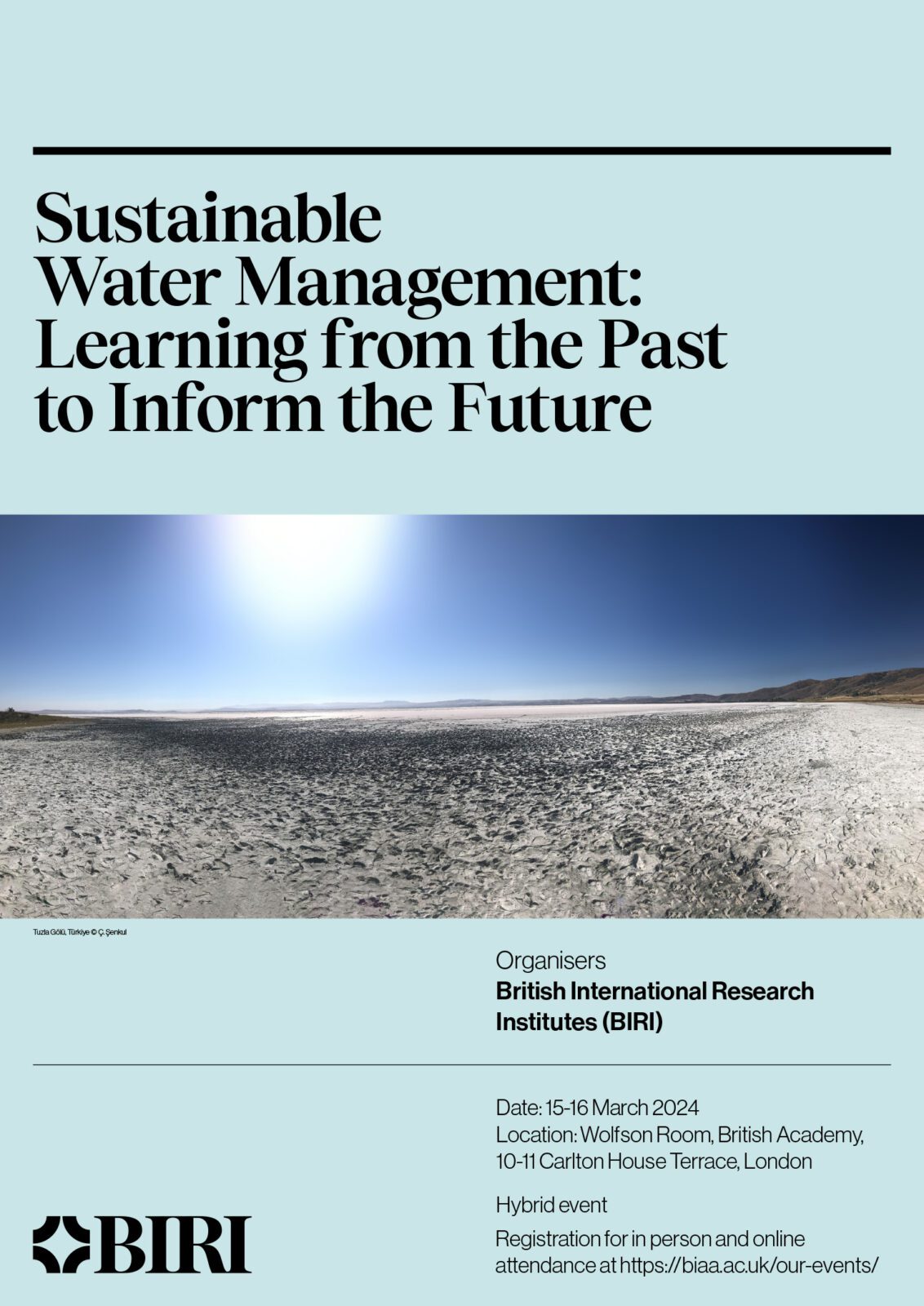A BIRI Interdisciplinary Conference:
Sustainable Water Management: Learning from the Past to Inform the Future
The British Academy, London
The world is facing an unprecedented water crisis due to increasingly extreme weather patterns, unsustainable water management practices, overuse of available resources, and exponential population growth. In many of the regions across which the British International Research Institutes (BIRI) operate, the impact of the climate crisis is becoming more and more tangible and reconsideration of current water management practices is urgently needed.
In this context, policymakers and planners are increasingly aware of the potential relevance of past practices. Many ancient systems had much greater longevity than modern infrastructure and were often inherently more sustainable; consuming less energy, being easier to operate and maintain, and having more communal governance structures.
As today’s challenges are not directly comparable to those of the pre-industrial world – and in most cases ancient solutions cannot simply be reactivated or replicated – a multi-faceted approach involving mapping present-day problems and attitudes towards water and its use and investigating how past societies responded to the challenge of sustainably managing water resources is needed, as is consideration of geological and geographical contexts. Models can be developed based on the combined results to inform culturally appropriate planning and policy making.
The BIRI Sustainable Water Management Initiative involves all eight British International Research Institutes (BIRI) and brings archaeologists, environmental scientists, historians, engineers, social scientists, and other stakeholders together to investigate how a multi-disciplinary, inter-regional, deep-time approach can lead to better understanding of the water-related impacts of climate change and other current challenges, as well as how these can be mitigated.




